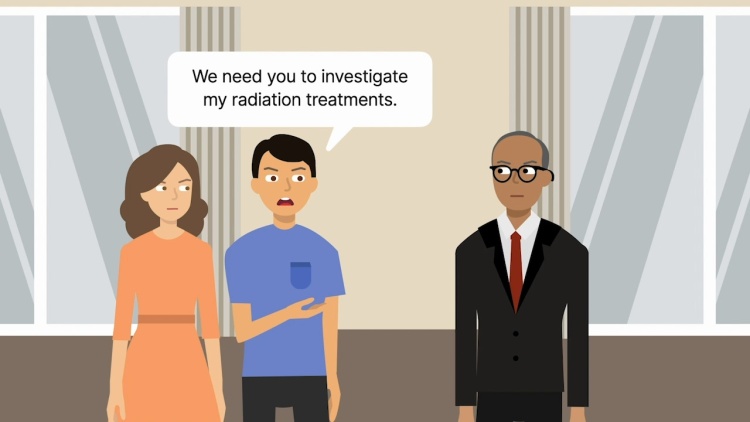Kern v. St. Joseph’s Hospital
New Mexico Supreme Court
697 P.2d 135 (1985)
- Written by Craig Conway, LLM
Facts
Dale Kern received external beam radiation therapy at St. Joseph’s Hospital (St. Joseph’s) (defendant) in an effort to combat a diagnosis of cancer of the bladder. The radiation treatments were administered by Dr. Doyle Simmons (defendant), an employee of X-Ray Associates (X-ray) (defendant). Although Dr. Simmons informed Dale that he would receive 30 treatments, only 25 were administered. When Dale and his wife Danny (plaintiff) inquired why there fewer treatments than expected, Dr. Simmons failed to give a reason. Shortly thereafter, Dale died. After reading a newspaper article many years later alleging that St. Joseph’s administered excessive radiation to patients, Danny began to suspect that Dale was one of the patients to whom excessive radiation had been given during his 25 treatments and she hired an attorney to investigate the matter. Danny filed suit in her capacity as representative of Dale’s estate against St. Joseph’s, Simmons, and X-Ray alleging that Dale’s death was the result of the negligent administration and calculation of the radiation therapy. Simmons and X-Ray filed a motion for summary judgment arguing that Danny’s complaint was barred by the three-year statute of limitations for a medical malpractice suit. The trial court agreed and dismissed the complaint. Danny appealed. The court of appeals affirmed. The New Mexico Supreme Court granted certiorari to review.
Rule of Law
Issue
Holding and Reasoning (Federici, C.J.)
What to do next…
Here's why 899,000 law students have relied on our case briefs:
- Written by law professors and practitioners, not other law students. 47,000 briefs, keyed to 994 casebooks. Top-notch customer support.
- The right amount of information, includes the facts, issues, rule of law, holding and reasoning, and any concurrences and dissents.
- Access in your classes, works on your mobile and tablet. Massive library of related video lessons and high quality multiple-choice questions.
- Easy to use, uniform format for every case brief. Written in plain English, not in legalese. Our briefs summarize and simplify; they don’t just repeat the court’s language.





